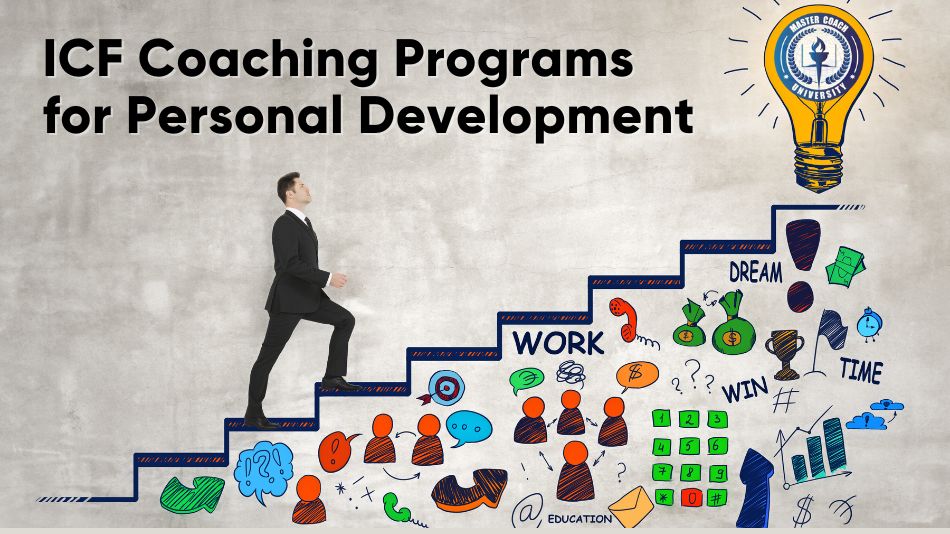In a world where personal and professional growth is of great importance, the role of a coach has never been more crucial. ICF coach training, or International Coach Federation coach training, offers aspiring coaches a globally recognized framework for developing the skills and competencies required to empower individuals and organizations. ICF is the leading global organization for professional coaches, setting the standards for training, ethics, and coaching practices. The rigorous certification process ensures that a coach is not only trained in the art of coaching but also reflects professionalism, empathy, and ethical responsibility. ICF training is that which enables a person to create a difference in their clients’ lives and lead them towards transformation and change.
ICF training has been developed for creating a coach who can guide his clients to self-discovery, goal-setting, and crossing over obstacles. It involves active listening, powerful questioning, creating trust and intimacy, and designing action plans. ICF-certified coaches are trained to be present with their clients so that they can explore their challenges, tap into their inner resources, and find solutions that are aligned with their goals. This holistic approach creates a deep sense of empowerment, enabling clients to take ownership of their development and achieve lasting results.
Core competencies Key elements in ICF Coach Training Coaching
The most important feature of ICF coach training is its focus on core coaching competencies. These are the skills that any ICF-certified coach has to acquire and master to be effective in the work they do with clients. The core competencies include trust and rapport, active listening, powerful questioning, and direct communication. When honed, coaches can create space for clients to feel safe and supported in discussing their challenges and goals.
For example, active listening is more than the hearing of the words; it means understanding the content, observing the body language in that communication, and asking questions that spur the former to go deeper in the conversation. Powerful questioning brings about the creation of newness by changing the perspectives into deeper insights that can enable clients to discover solutions that will not initially be seen.
Ethical Coaching Practices
ICF coach training emphasizes ethics and professionalism. The Code of Ethics of ICF presents clear standards for conduct in the coaching relationship, so coaches trained according to this code respect their clients’ confidentiality, remain objective, and avoid conflicts of interest. Ethical coaching practices ensure that the trust of a coach’s clients is built and that safe, supportive conditions are maintained, making sure that the best interest of clients is worked for at all times.
In addition to this, ICF training teaches coaches about the limits and boundaries of coaching. They teach them to ask for referrals, if necessary. This ethical coaching framework helps them build a partnership with their coaching clients based on mutual respect, trust, as well as complete confidence that your coach is professionally and ethically acting.
ICF training encourages coaches to be continually developing themselves both personally and professionally. Coaches are taught to be self-aware, reflective, and committed to improving their skills. As part of their training, they must undergo supervised practice coaching sessions and receive feedback from experienced coaches. This is an ongoing feedback loop that helps the coach refine their techniques, gain confidence in their abilities, and continuously evolve as professionals.
In other words, the focus on personal development in ICF coaching training ensures that coaches have a capacity for effecting success in their clients while developing throughout a career. Thus, this lifelong learning component becomes a deeply embedded portion of ICF philosophy due to its incorporation of the fact that coaches will remain relevant, adaptive and skilled in an ongoing evolution of coaching trends and the demand of clients.
Coaches for Different Kinds of Clients
ICF coach training enables a coach to be prepared to coach a wide variety of clients-from individual personal growth, to executives, and leaders to enhance their performance. Coaches learn how to tailor their approach to meet the unique needs of each client: whether they are coaching an individual, a group, or a team. This is important for the coach who has to work with a diverse population of clients because each client will have different goals, challenges, and ways of engaging with the coaching process.
Corporate coaching, for instance, requires trained ICF coaches to directly work with executives or leaders in addressing sophisticated professional challenges to develop leadership qualities and improve teams’ dynamics. With this recognition of the kind of demands their clients have placed on them, effective coaching can produce relevance, impact, and results.
Executive Leadership Coaching Effects
The field of executive leadership coaching can have a great impact if one goes through ICF coach training. Executive coaching is more about improving the skills of senior leaders and executives, including the improvement of their decision-making abilities and the accomplishment of organizational goals. This type of coaching goes beyond the basic management skills, as it focuses on strategic thinking, emotional intelligence, and interpersonal communication-all very important at the executive level.
ICF-trained coaches bring an entire range of tools and techniques for executive leadership coaching, thereby allowing clients to get better at themselves, reduce their stress levels, and align their approach to leadership in the right manner with the organizations’ goals. The training enables coaches to handle high-level executives who face peculiar pressures from large teams and critical, high-level decisions.
One of the significant benefits of executive leadership coaching is that it can offer an outside perspective to a leader of areas of strength and areas to be developed. This will help leaders learn from objective feedback by guides or coaches as to blind spots about which they never knew; the outcome would therefore be greater self-awareness, leading to appropriate leadership behaviors. By developing this level of self-awareness, executive coaches help leaders develop the emotional intelligence necessary to create effective relationships and inspire their team, as well as navigate all the challenges presented by an organization.
Executive coaching under leadership enhances alignment of a leader with their core values and personal vision. In this case, it improves leadership style and the decision-making processes. Such leaders are most likely to build genuine and sustainable changes in the organization.
Conclusion Coach training at ICF is an excellent resource for aspiring coaches seeking to truly transform their clients. By the end of this training, they gain the skill, knowledge, and practices concerning ethics that assist them in serving their clients through personal and professional development. Applied in executive leadership coaching, such principles are infinitely more valuable: they enable the leaders to enhance their skills for leadership, raise self-awareness, and enhance confidence in tackling the intricacies of their respective roles. ICF-trained coaches can really make a long-term difference in people’s lives by helping individuals and executives be more successful and fulfilled at both personal and professional levels.

